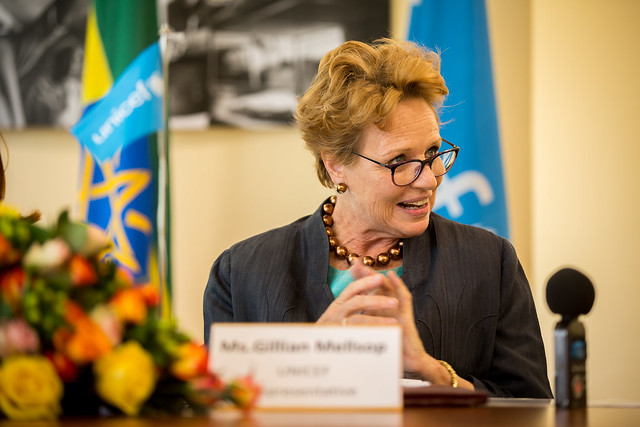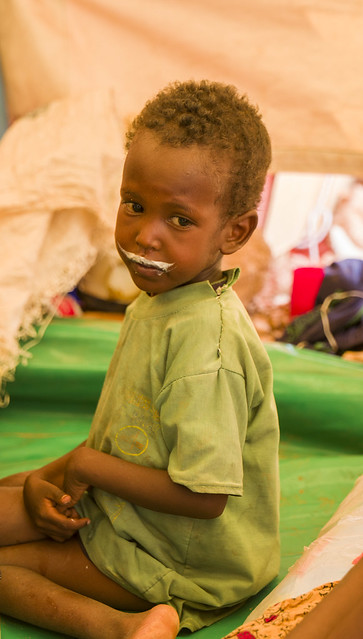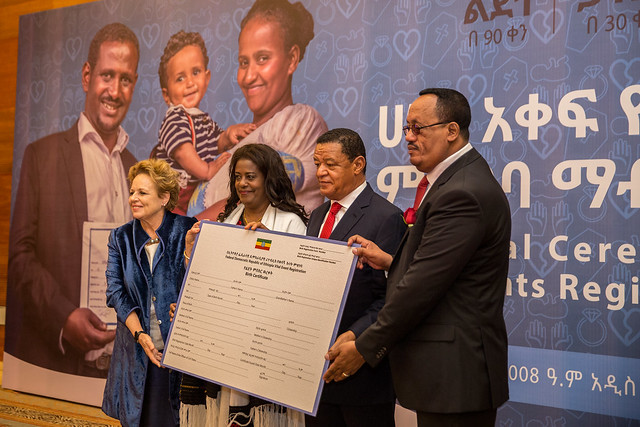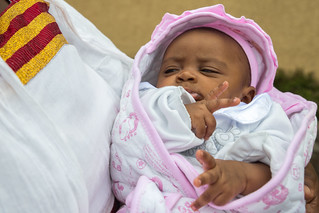By Kosumo Shiraishi
BURKA RAMIS, OROMIA, 21 August 2017- In Burka Ramis, a remote rural village of West Hararge, Oromia region, Ethiopia, 50 young boys and girls sing cheerfully in their classroom. It is summer, a school break time for the rest of the pupils, but for these children, it is a regular class session.
Beriso Genemo, their teacher, prepares detailed weekly and monthly lesson plans. He decided to join teachers in his school who participate in summer teaching of beginners, because he understands the importance of school readiness, especially for children from rural and disadvantaged communities.
This summer initiative is known as the Accelerated-School-Readiness (ASR) programme. ASR is an innovative early learning model that lasts eight weeks and targets six-year-olds from poor families. It provides quality education by trained teachers such as Beriso to help children, who previously had no access to preschool or other early learning models, so that they make smooth transition from home to school.
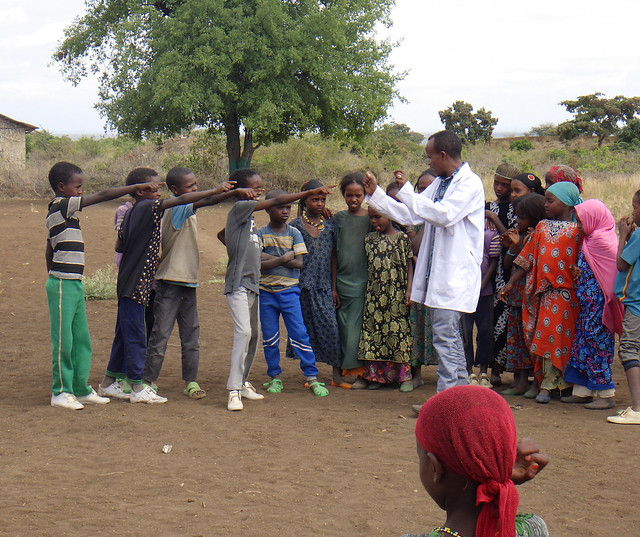
“The programme helps children to learn better and reach to their full potential,” says Beriso “I could already see their progress.”
Other ASR teachers, Huseein Ahmed from Nano Bereda School and Adana Geri from Borte School also acknowledge the importance of the programme. They explained that attending the ASR class is helpful because children can learn how to take lessons, interact with teacher and classmates and go to school by themselves.
Supporting children who don’t have the opportunity for early learning
Research shows that investing in quality early learning programmes is one of the most effective ways to improve a child’s success in a school.[1] In Ethiopia, children under five comprise the largest age bracket in the population. There are approximately 10 million children aged 0-3 years, and 7.7 million children aged 4-6 years. Investing in Early Child Development (ECD) interventions, like early learning, is critical for the long-term prosperity of the country.
There are other forms of school readiness programmes in Ethiopia, the largest being the government’s “O” pre-school classes. However, ASR is one that fills a crucial gap because it operates in communities where formal preschool classes are not possible, such as in rural areas where it is difficult and costly to provide quality “O” classes.
UNICEF through the Swiss National Committee, with generous support from Roche, is currently supporting Ethiopia’s Ministry of Education to develop and implement the ASR programme in four regions (Oromia, Amhara, SNNP and Beningal-Gumuz).
Every ASR teacher participates in a comprehensive training and is provided with resource materials (books), as well as individual exercise booklets (workbooks) to distribute to each child.
The programme has generated commitment from all levels of Government, teachers communities and children as well. Abduselam, a community member from Burka Ramis says, “We appreciate this programme that prepares our children for proper education. Our community is providing support by renovating class rooms and encouraging families to send their six-year-old children to school.”
Beriso became a teacher eight years ago because he believes in empowering children and developing human resources within the country. “My dream is to see these disadvantaged children attending the ASR programme to become good citizens in our society.”
[1] Multiple research studies have evidenced the importance of early learning. See UNICEF’s research website for more details: https://www.unicef-irc.org/knowledge-pages/Early-Childhood/


